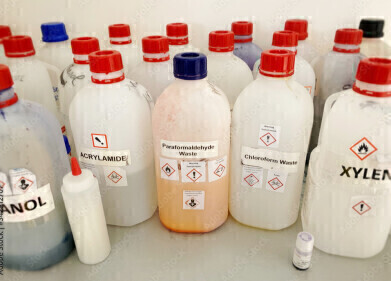Supercritical fluid (SFC), Green Chromatography
Legal Cannabis — Supercritical Fluid Chromatography Could Be the Answer
Sep 09 2015
On January 1 2014 the law changed in Colorado, USA, making the sale of cannabis from licensed premises legal. Several US states now allow the use of cannabis for recreational purposes with more allowing its medicinal use.
This has created a whole new industry based around the manufacture and testing of legally produced cannabis. Previously the only people manufacturing cannabis were likely to be the supplier to your local friendly drug dealer and the only scientific testing was likely to be the local police force as they carried out forensic analysis prior to a prosecution.
But now the manufacture and testing of cannabis is a growing business — and as in any business, having a good reputation can be essential to helping your business grow. So the safe manufacturing of cannabis is crucial if suppliers want to supply a consistent, quality product that users can rely on.
As the changes are now over a year old — what has happened and what role has chromatography in the fledgling industry.
Producing cannabis safely
To help the state authorities in Colorado make sure that the supply of cannabis is safe, drug manufacture has to be carried out under strict guidelines and regulations — with the same rules applied as for any hazardous chemical process.
Solvent extraction is one method that can be used — with solvents such as butane or propane used to extract the active ingredients. But solvent use is hazardous and emissions have to be monitored and reduced. Manufacture can be carried out under extraction systems, but the process has to be ventilated to make sure any explosive or flammable limits are not reached. Whilst these are all established practices in traditional chemical manufacturing, for cannabis they are additional protocols as the manufacture moves out of the illegal drug dens into mainstream manufacturing.
SFC could be the future — and not just for cannabis
Even though strict procedures are used in these traditional processes they still use an organic solvent — but one company, Evolab, is working with a chromatography company (PIC-Solution) on a cutting edge method to manufacture cannabis without using potentially hazardous solvents.
Supercritical Fluid Chromatography (SFC) uses carbon dioxide in a state known as supercritical which exhibits both liquid and gaseous properties and uses the best of each to act as a solvent with good solution properties and low viscosity.
The cannabis extracts are removed from the buds by supercritical CO2 — when the extracts leave the instrument the pressure is lowered and the CO2 evaporates leaving behind the extracted components — no solvents required. In a process similar to the way coffee can be decaffeinated — could SFC help cannabis producers make a safe and consistent product that will soon be available at a shop near you.
For more on SFC, take a look at the article, Injection by Extraction: A Novel Sample Introduction Technique for Preparative SFC.
Image: O'Dea via Wikimedia Commons
Events
Jan 20 2025 Amsterdam, Netherlands
Feb 03 2025 Dubai, UAE
Feb 05 2025 Guangzhou, China
Mar 01 2025 Boston, MA, USA
Mar 04 2025 Berlin, Germany












